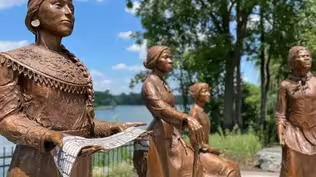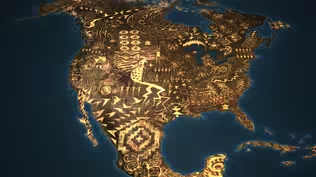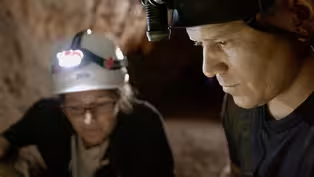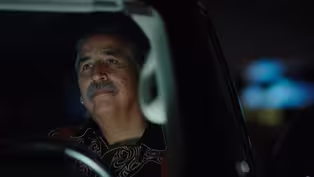
Language Protectors
Clip: 11/14/2023 | 5m 34sVideo has Closed Captions
Donald Soctomah and Dwayne Tomah fight keep the Passamaquoddy language alive.
Donald Soctomah and Dwayne Tomah are on a mission to keep the Passamaquoddy language alive and get back stolen land. They will be aided by a remarkable discovery - 130-year-old recordings on wax cylinders.
Problems playing video? | Closed Captioning Feedback
Problems playing video? | Closed Captioning Feedback
Funding is provided by Partnership with Native Americans.

Language Protectors
Clip: 11/14/2023 | 5m 34sVideo has Closed Captions
Donald Soctomah and Dwayne Tomah are on a mission to keep the Passamaquoddy language alive and get back stolen land. They will be aided by a remarkable discovery - 130-year-old recordings on wax cylinders.
Problems playing video? | Closed Captioning Feedback
How to Watch Native America
Native America is available to stream on pbs.org and the free PBS App, available on iPhone, Apple TV, Android TV, Android smartphones, Amazon Fire TV, Amazon Fire Tablet, Roku, Samsung Smart TV, and Vizio.
Buy Now
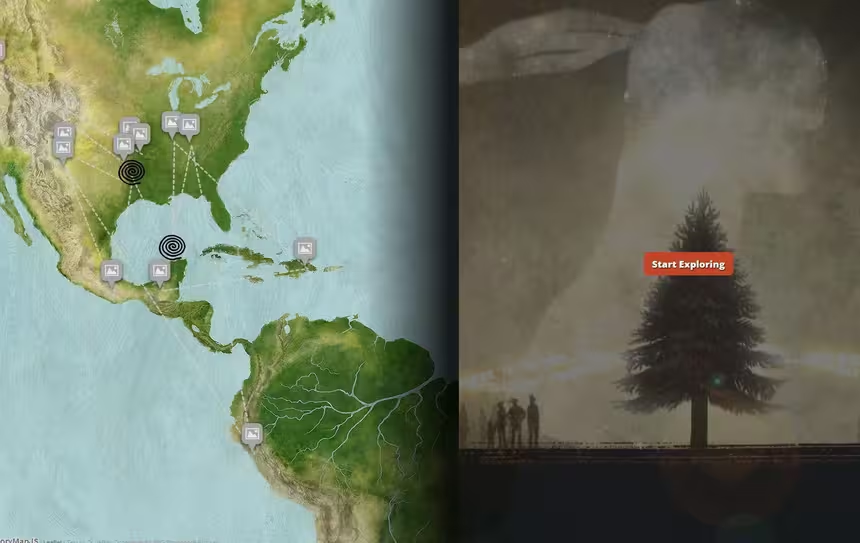
Journey Through Native America
Explore Native America through geography, cultural artifacts and storytelling.Providing Support for PBS.org
Learn Moreabout PBS online sponsorship(drum playing, woman singing) NARRATOR: In Maine, at the most northeastern place in the United States, the struggle to keep language alive is deeply connected to the land.
Donald Soctomah is the Passamaquoddy tribal historic preservation officer.
(song continues) And Dwayne Tomah is the director of the Passamaquoddy Museum.
(speaking Passamaquoddy) NARRATOR: They're on their way to a place they call Kuwesuwi Monihq-- Pine Island.
TOMAH: Our people have always had names for these islands.
And that particular island's always been Kuwesuwi Monihq to our people.
- Yeah.
DONALD SOCTOMAH: 500 years ago, we'd be seeing probably a group of birch bark canoes.
The fish would be jumping out of the water.
It was a happy place.
A place that sustained our people.
TOMAH: That's right.
(hawk calls) NARRATOR: For thousands of years, Kuwesuwi Monihq was part of the Passamaquoddy's homeland.
A 1794 treaty with the newly formed United States government recognized the Passamaquoddy's ownership.
♪ ♪ This island was supposed to be protected forever.
But the island's name was changed.
So it was no longer Pine Island as listed in the treaty.
All of a sudden, the name of the island was White's Island.
NARRATOR: The government of Maine changed the name of the island so it wouldn't match the name on the treaty.
The government used language to steal the land from the Passamaquoddy.
We're pretty lucky today, the eagles left us a gift.
(chuckles) Yeah.
It's really nice to be back here.
DONALD SOCTOMAH: About 100 years ago, when our people were taken off this island... - Hm.
- ...the loggers came in here and just stripped the island clear of all the pine trees.
TOMAH: Hm.
DONALD SOCTOMAH: Stripping it of its very name.
TOMAH: Yeah.
This is the site of our old village.
TOMAH: Yeah.
SOCTOMAH: On Kuwesuwi Monihq.
I can feel their spirits.
It's powerful here.
- Yeah.
♪ ♪ DONALD SOCTOMAH: This is the center of the lake, our life.
- Yeah.
NARRATOR: For the Passamaquoddy, land and language are intimately connected.
And both are under attack.
Donald and Dwayne are on a mission to keep the language alive and get this island back.
(singing in Passamaquoddy) (continues singing) NARRATOR: They will be aided by a remarkable discovery.
MAN (on recording): Vocabulary from the Passamaquoddy Indians, March the 15th, 1890.
(Noel Joseph speaking Passamaquoddy) ♪ ♪ WOMAN (speaking Passamaquoddy): NARRATOR: The voices on those 130-year-old recordings could help save the Passamaquoddy language.
Dwayne wants to find them.
You are the youngest fluent speaker of the tribe.
Your pronunciation is excellent and your knowledge of the language is so important.
You have to listen to our ancestors.
I believe this is going to be your journey.
TOMAH: Mm.
NARRATOR: Dwayne grew up speaking Passamaquoddy in his home.
But for many in his generation, Native language was discouraged, or outright banned.
Episode 4 Preview | Language Is Life
Video has Closed Captions
Preview: 11/14/2023 | 30s | Experience the fight of Native Americans to keep their languages and ways of life alive. (30s)
Video has Closed Captions
Clip: 11/14/2023 | 5m 50s | Manny Wheeler dubs Star Wars into Navajo to help keep the Navajo language alive. (5m 50s)
Providing Support for PBS.org
Learn Moreabout PBS online sponsorshipSupport for PBS provided by:
Funding is provided by Partnership with Native Americans.
